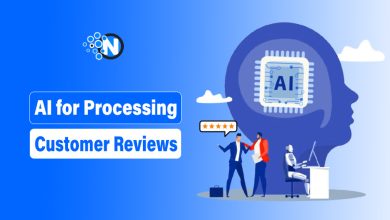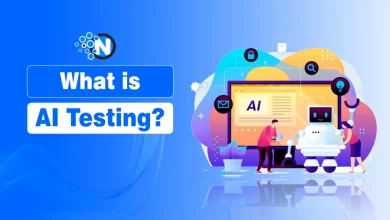10 Everyday Legal Tasks AI Can Automate Right Now

If you’ve ever felt buried under everyday legal tasks, drafting documents, organizing files, and double-checking deadlines, you’re definitely not alone. The good news? Artificial Intelligence is stepping in to handle many of those routine jobs faster, cleaner, and with way less stress. You don’t need to be a tech expert or work at a big law firm to take advantage of it, either. According to McKinsey, 88% of organizations use AI in at least one business function.
The beauty of modern AI for legal automation lies in its accessibility and practical application to everyday tasks. Rather than revolutionary changes requiring complete workflow overhauls, these tools integrate seamlessly into existing processes, handling repetitive work that consumes valuable attorney and paralegal time. From document review to client intake, legal research to contract analysis, AI is ready right now to transform how legal work gets done.
In this blog post, I have listed the ten everyday legal tasks that AI can automate immediately, delivering faster results, improved accuracy, and significant cost savings.

10 Legal Tasks AI Can Automate
1. Document Review and Analysis
Document review is one of the most time-intensive tasks in legal practice, whether for discovery, due diligence, or contract management. AI-powered document review platforms can process thousands of documents in hours, identifying relevant materials, flagging privileged communications, and extracting key information with accuracy exceeding human reviewers.
How AI Streamlines Document Review
Technology-Assisted Review (TAR):
- Learns from attorney-reviewed sample documents
- Applies learned criteria to entire document collections
- Ranks documents by relevance probability
- Reduces review volumes by 50-80%
Key Information Extraction:
- Identifies parties, dates, amounts, and critical terms
- Creates structured databases from unstructured documents
- Generates summary reports highlighting essential details
- Links related documents automatically
Modern platforms like Relativity, Everlaw, and Logikcull offer sophisticated AI capabilities that small firms can access, democratizing technology previously available only to large organizations with substantial resources.
2. Legal Research and Case Law Analysis
Legal research has evolved dramatically with AI-powered tools that understand natural language queries and deliver precisely relevant results. Instead of spending hours crafting Boolean searches and reading through dozens of cases, attorneys can ask questions in plain English and receive targeted answers with supporting authorities.
AI Research Advantages
Natural Language Processing:
- Understands conversational research queries
- Identifies conceptually similar cases using different terminology
- Ranks results by relevance and authority
- Suggests related legal concepts and issues
Citation Verification:
- Automatically checks citation accuracy
- Flags overruled or limited precedents
- Traces how cases have been applied subsequently
- Ensures cited authorities remain good law
Platforms like Ross Intelligence, Casetext’s CARA, and Westlaw Edge leverage AI to compress research that once took days into tasks completed in minutes.
3. Contract Drafting and Generation
Creating contracts from scratch or heavily customizing templates consumes significant attorney time. While knowing how to write a contract properly is still essential, AI contract drafting tools can generate complete first drafts based on user inputs, dramatically accelerating the drafting process while ensuring consistency and incorporating best practices. AI contract drafting tools generate complete first drafts based on user inputs, dramatically accelerating the drafting process while ensuring consistency and incorporating best practices.
Intelligent Contract Creation
Automated Drafting:
- Generates complete contracts from key information inputs
- Incorporates jurisdiction-specific requirements automatically
- Applies firm or company-specific clause libraries
- Maintains consistent terminology throughout documents
Clause Recommendations:
- Suggests appropriate provisions based on deal type
- Offers alternative language for specific terms
- Flags missing essential clauses
- Provides explanations for recommended provisions
Tools like LawGeex, Ironclad, and ContractPodAi enable even solo practitioners to produce sophisticated contracts efficiently.
4. Due Diligence Reviews
Merger and acquisition due diligence traditionally required teams of attorneys reviewing hundreds or thousands of contracts, leases, and corporate documents. AI platforms now handle initial review, identifying risks, unusual provisions, and items requiring attorney attention.
AI-Powered Due Diligence
Rapid Contract Analysis:
- Reviews entire contract portfolios in hours
- Extracts key terms including change of control provisions
- Identifies liability caps, indemnification, and termination rights
- Flags non-standard or problematic language
Risk Identification:
- Scores contracts by risk level
- Highlights potentially deal-breaking provisions
- Identifies missing consents or approvals
- Generates comprehensive due diligence reports
This automation reduces due diligence timelines from weeks to days while improving thoroughness and reducing costs substantially.
5. Email Management and Prioritization
Legal professionals receive hundreds of emails daily, with critical messages often buried among routine correspondence. AI email tools automatically categorize messages, prioritize urgent items, and draft responses to common inquiries.
Intelligent Email Handling
Automatic Categorization:
- Sorts emails by client, matter, or subject
- Flags time-sensitive messages requiring immediate attention
- Identifies emails requiring substantive responses versus informational messages
- Routes messages to appropriate team members
Response Generation:
- Drafts replies to routine inquiries
- Suggests response templates based on message content
- Maintains consistent tone and messaging
- Learns from attorney edits to improve suggestions
These capabilities help attorneys maintain inbox control and ensure nothing critical gets overlooked in email overload.
6. Legal Document Proofreading
Even experienced attorneys miss typos, citation errors, and formatting inconsistencies in lengthy documents. AI proofreading tools provide comprehensive review that catches errors human readers overlook, ensuring professional quality in all work product.
Advanced Proofreading Capabilities
Grammar and Style:
- Identifies complex grammatical errors
- Suggests clearer phrasing and sentence structure
- Ensures consistent terminology usage
- Detects passive voice and recommends improvements
Legal-Specific Checks:
- Verifies citation format compliance with Bluebook or other standards
- Catches inconsistent defined terms
- Identifies conflicting provisions within documents
- Flags missing cross-references
Tools like BriefCatch and LegalSifter offer specialized legal proofreading beyond standard grammar checkers.
7. Client Intake and Onboarding
Initial client consultations involve collecting extensive information, conducting conflict checks, and completing intake forms. Legal AI platforms automate much of this process, gathering information through intelligent questionnaires and automatically populating case management systems.
Streamlined Intake Processes
Automated Information Collection:
- Guides clients through comprehensive intake questionnaires
- Adapts questions based on case type and prior responses
- Collects and organizes supporting documents
- Creates preliminary case summaries automatically
Conflict Checking:
- Searches firm databases for potential conflicts
- Identifies relationships with opposing parties or counsel
- Flags ethical concerns requiring review
- Generates conflict check reports instantly
This automation ensures consistent, thorough intake while freeing staff to focus on client relationship building.
8. Deadline and Calendar Management
Missing deadlines can result in malpractice claims and case dismissals. AI-powered calendar systems automatically track filing deadlines, court dates, and statute of limitations, sending alerts and preventing catastrophic oversights.
Intelligent Deadline Tracking
Automatic Calculation:
- Computes filing deadlines based on court rules
- Tracks statute of limitations for potential claims
- Adjusts for weekends, holidays, and court closures
- Updates automatically when rules change
Proactive Alerts:
- Sends escalating reminders as deadlines approach
- Notifies multiple team members for redundancy
- Integrates with practice management systems
- Creates tasks for deadline-related activities
These systems provide critical safety nets preventing the deadline-related disasters that haunt legal professionals.
9. Time Entry and Billing
Accurate time tracking remains essential but tedious, with attorneys often reconstructing time entries at day’s end. AI for legal time tracking automatically captures billable activities, suggests appropriate descriptions, and ensures complete, accurate billing.
Automated Time Capture
Activity Monitoring:
- Tracks document work, research, emails, and calls
- Suggests time entries based on activities performed
- Assigns appropriate billing codes automatically
- Eliminates reconstruction of time at day’s end
Billing Compliance:
- Ensures entries comply with client billing guidelines
- Flags potentially non-billable activities
- Identifies time that may need adjustment
- Generates detailed narratives for time entries
This automation improves billing accuracy, reduces write-offs, and frees attorneys from administrative time tracking burden.
10. Discovery Response Generation
Responding to discovery requests requires identifying relevant documents, organizing them logically, and preparing response statements. AI tools automate document collection, organize materials by request, and draft response language.
AI-Assisted Discovery Responses
Document Collection:
- Identifies documents responsive to each request
- Organizes materials by request number
- Flags privileged items requiring separate handling
- Creates production-ready document sets
Response Drafting:
- Generates objection language based on request issues
- Creates substantive responses referencing produced documents
- Ensures consistent response formatting
- Maintains response logs automatically
These capabilities dramatically reduce the time and cost associated with discovery compliance while ensuring thorough, professional responses.
Implementation Considerations
While these AI capabilities are available now, successful implementation requires thoughtful planning. Start by identifying which tasks consume the most time in your practice and evaluate AI solutions specifically addressing those pain points. Many vendors offer free trials or demonstrations, allowing you to test tools before committing.
Getting Started Successfully
Evaluation Criteria:
- Ease of integration with existing systems
- Training and support quality
- Pricing structure and total cost
- Security and confidentiality protections
Adoption Strategies:
- Begin with pilot projects in limited practice areas
- Invest in proper training for all users
- Establish quality control protocols
- Gather feedback and adjust implementation
Remember that AI augments rather than replaces legal professionals. These tools handle mechanical tasks, freeing attorneys and staff to focus on strategic thinking, client relationships, and complex legal analysis that truly requires human expertise.
Final Thoughts
The ten suggested legal activities listed above are only examples of what can be automated by AI today. These are proven technologies that are available and provide quantifiable value to both small and large law firms and legal departments. Reviewing documents to time-tracking, research to drafting, AI can work faster and better on time-intensive tasks in comparison to manual tasks.
Legal professionals who will succeed in the next few years will be those who adopt such tools in a way that benefits themselves, as they will know that AI in legal automation is not an act of substituting lawyers; it is about enabling them to provide more value to clients and more effectively. It is not about adopting AI automation or not, but about which jobs to start with automation and which ones to use as soon as possible to introduce changes in your practice.




